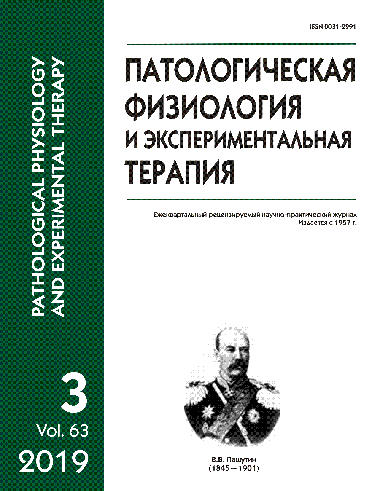Angiotensin II and its role in regulation of heart tolerance to ischemia/reperfusion impact. ACE inhibitors and angiotensin II AT₁-receptor antagonists
Abstract
The review analyzes reports on the role of angiotensin II in regulation of heart tolerance to ischemia/reperfusion and cardioprotective properties of angiotensin converting enzyme (ACE) inhibitors and angiotensin II AT1-receptor antagonists. Angiotensin II is known to have an infarct-limiting effect, which according to some reports is associated with activation of the AT1 receptor and according to other reports results from stimulation of the AT2 receptor. In addition, angiotensin improves heart contractility during reperfusion, which is associated with activation of the AT1 receptor. Angiotensin II and AT1 receptor are also involved in the infarct-reducing effect of ischemic preconditioning. Experimental data on the ability of AT1 receptor antagonists to influence the infarct size are inconsistent; one study showed that these antagonists can exert an infarct-limiting effect whereas there is some evidence against such effect. Experimental studies have suggested that ACE inhibitors can restrict the infarct size, which is associated with increased bradykinin level and NO production. There is no convincing evidence that ACE inhibitors and AT1 receptor antagonists can restrict the infarct size in patients with acute myocardial infarction. However, ACE inhibitors and AT1 receptor antagonists prevent post-infarction heart remodeling.






